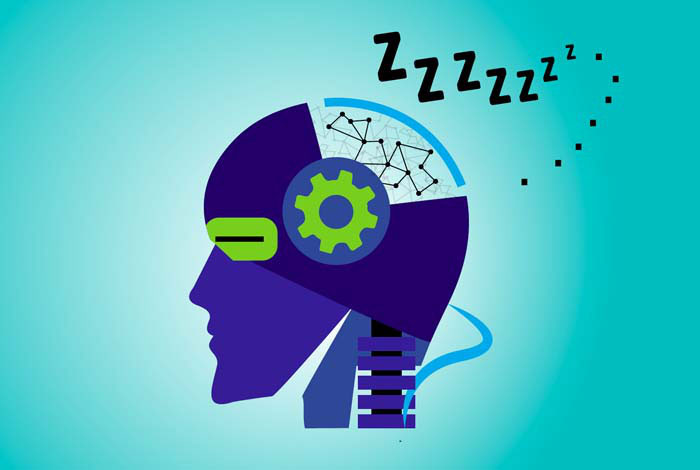Shocking truth: Does AI also need sleep?
No one can say for sure if a computer counts the electric sheep when it is daydreaming, but it can be said that they also need rest, similar to the way our brain needs sleep to stay active. The new findings appear in a new research report from Los Alamos National Laboratory.
" We study neural networks, that is, data systems similar to the way our brain works, " said computer scientist Yijing Watkins. ' We are interested in training a computer processor that acts like the human brain, allowing it to learn how other living brains collect information during development .'
Ms. Watkins and her team discovered that neural network emulation systems became unstable after a long period of self-study. When they put the neural net in a state similar to the thought waves our brains experience during sleep, the system stabilizes again.
' It's like giving our neural networks a good night's sleep, ' says Watkins.

AI also needs sleep.
The discovery comes as the team develops an artificial neural network, letting it learn to see the animal-like world. They have difficulty stabilizing a neural net as it learns itself through a dictionary, a process that involves identifying objects without examples for comparison.
' The problem of keeping the system stable is when we apply the way the real brain analyzes things, when we press a neural network-like processor, or when we learn about the nature of biology to put it into research. research ', computer scientist and study co-author Garrett Kenyon said. ' Most machine learning, deep learning, and AI researchers do not have this problem, because these artificial systems are leveraging the results of the precise calculations obtained during the study. help '.
Researchers let machines experience the feeling of sleeping with a variety of sounds, comparable to the noise you often hear when adjusting the radio. The most stable results appear when they let the machine experience the sounds that follow the normal distribution (Gaussian distribution). They hypothesized that this sound is similar to what biological neurons experience when falling asleep, which allows the brain to remain stable.
The next step, the team will apply this sleep algorithm to Loihi chip , a computer chip that works similar to Intel's human brain. They expect the new application will allow Loihi to 'take a nap' with naps, allowing the processing of information received from observations to be more stable. If this research can confirm that an artificial brain needs sleep, we can make similar claims about future AI systems.
- 30 facts about sleep
- Things happen during sleep
- Decipher the surprising truth behind the ability to 'sleep without eyes' in the legend
- The reason people have to sleep
- Sleeping a lot also causes illness
- Decode the phenomenon of saying dream when sleeping
- 5 reasons why you sleep more than 10 hours a day and still yawn
- The secret of surprise about sleepwalking
- Sleep affects the color of the owl?
- How many times do you wake up during the night?
- What happens when you stop breathing during sleep?
- How is sleeping properly?
 The world's first sexless AI voice
The world's first sexless AI voice This cool t-shirt will make you invisible to AI
This cool t-shirt will make you invisible to AI AI can predict personality only through selfie photos
AI can predict personality only through selfie photos The world-famous chess player lost to Golaxy before, artificial intelligence 'made in China'
The world-famous chess player lost to Golaxy before, artificial intelligence 'made in China'